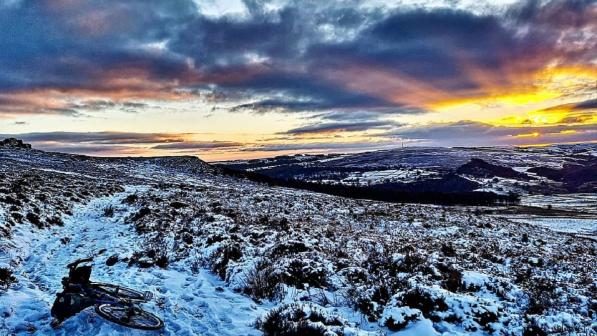Criminalising camping?

What is the consultation about?
The Government announced late last year that they were looking at legislation which would criminalise trespass with an intent to reside on land - aimed at prohibiting travellers and gypsy encampments from setting up on private or public land.
Isn’t trespass already an offence?
Trespass is currently a civil offence rather than a criminal one, which means that the landowner can sue the trespasser for damages in the civil courts, but the police are not involved and there’s no criminal record for the offender.
However, there are specific circumstances in which trespass becomes a criminal offence when it’s known as 'aggravated trespass' which includes squatting, raves and hunt sabotage.
Would this proposal make all forms of trespass illegal?
No, as worded the consultation appears to be strictly limited to trespass with vehicles with an intent to reside, although some of the definitions that are being used are unclear. It’s probably also important to comment that a number of types of trespass are already covered by the criminal law, including some types of encampments, so at one extreme this could just be seen at tightening the current rules, but at the other it could have a much wider impact on activities such as bikepacking and wild camping.
I’ve seen some suggestions that the government want to criminalise all forms of trespass, is that right?
The uncertainty was added by a statement in the Conservative Party election manifesto that “We will make intentional trespass a criminal offence”. Taken at face value, this statement could logically extend to criminalising cycling on footpaths, or walking on an informal path where there is no official right of access, as both these activities technically are classified as trespass.
Realistically Cycling UK suspects that this was simply an example of unclear wording referring to the existing consultation, but the impact of such a statement certainly leaves a level of confusion and doubt about the true intentions of the proposed legislation.
What is Cycling UK’s position?
Cycling UK thinks many of the proposals are poorly defined and have to be opposed as currently drafted.
We accept that there are a number of legitimate concerns over the impact of illegal encampments on both landowners and local communities.
Indeed, the steps taken to prevent this type of unauthorised encampment currently have a significant impact on many recreational users. Height barriers at car parks affect many cyclists and horse box users, while the construction of ditches, barriers, dragons’ teeth, rocks and obstacles – all routinely justified by the difficulty evicting such encampments – frequently restrict access to many open spaces and public paths. So it is fair to say that new laws on this issue might actually make legitimate recreational access easier in some places.
What does Cycling UK think needs to happen?
We think it's really important to draw a very clear line between the sort of illegal encampments targeted in the headlines of the consultation and other forms of civil trespass.
No person should be put in the position of breaking the criminal law through accident or ignorance. There are a variety of longstanding historic legal rights to divert away from existing rights of way where they are obstructed or out of repair - anything which makes people afraid to do this would be unacceptable.
We do not believe that the intent of such legislation is, or should be, to ban things like traditional horse-drawn gypsy caravans from stopping by the roadside overnight. Most people would regard such activities as a quintessentially English scene, and it has been tolerated through custom and practice for hundreds of years.
Similarly, throughout history, drovers and other travellers have frequently camped by the side of the highways and byways when travelling long distances - traditional low-impact cycle camping and back-packing/bike-packing was built on this, and has been promoted by our organisation and others for well over a hundred years.
Again, custom and practice plays an important part here, and inflexible heavy-handed legislation risks impacting on legitimate, traditional pastimes if not carefully balanced.
As such, we also believe that any proposed legislation should also clearly distinguish between motor vehicles (and caravans/trailers drawn by motor vehicles) and non-mechanically propelled vehicles, including pedal cycles and horse drawn vehicles. Such caveats would provide important safeguards against recreational users falling foul of the law.
What is Cycling UK doing?
We have worked with the Ramblers, British Mountaineering Council, British Canoeing, British Horse Society and Open Spaces Society and a variety of others to issue a joint letter calling for urgent clarification on the Government’s long-term plans around the criminalisation of trespass, and a public commitment not to introduce measures that would limit people’s access to and enjoyment of the outdoors.
Cycling UK is also submitting our own separate response to the consultation.
What can I do to help?
At the moment this is just a consultation, but we suspect it will come back as legislation before long - we think that bikepackers, mountain bikers and others should consider gently beginning to get their MPs on board by letting them know about how they use and enjoy the countryside, and about the challenges they face - from the difficulty finding places to camp through to issues with rights of way and lack of access.
Send them a tweet or a postcard when you are out on your bike, even invite them out on a ride (MPs will sometimes do almost anything to get a photo in the local paper). Above all, be real people, be names and faces, so that when issues about access come to parliament, MPs have a real person to connect to the issue, rather than just 'cyclists'.
